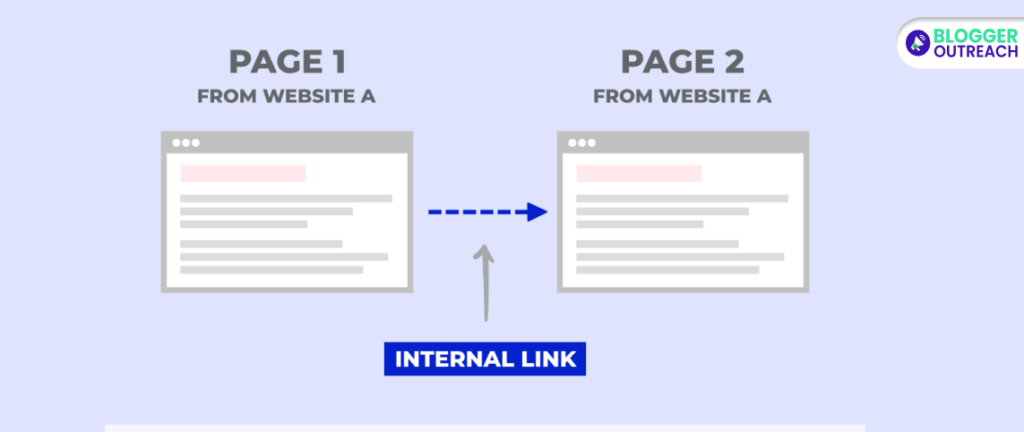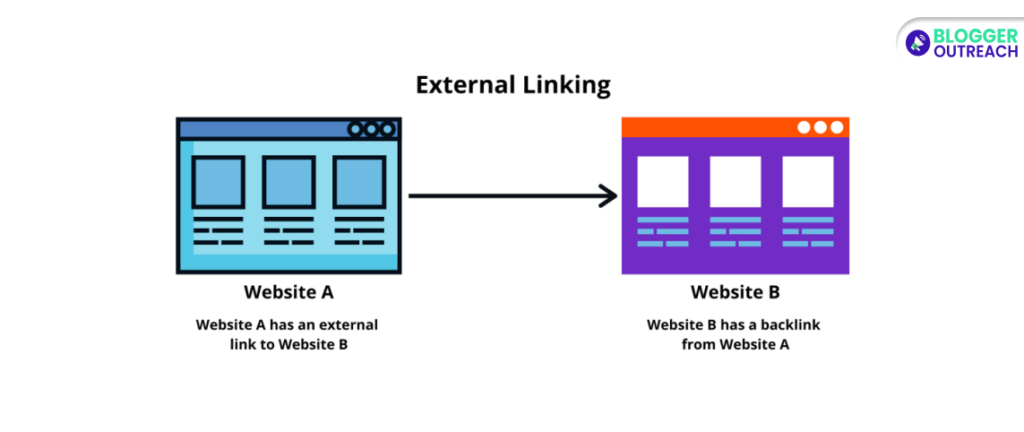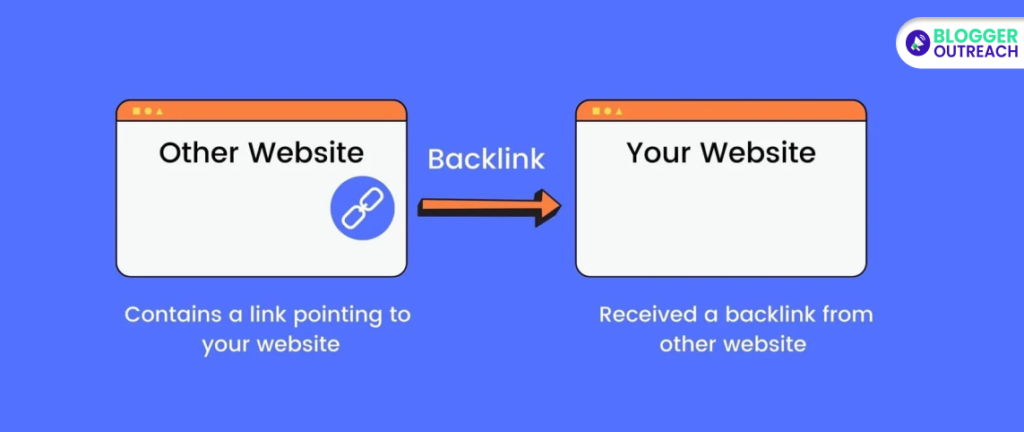Table Of Content
Nearly all blog posts you come across have links. All the top SEOs and bloggers include links in their blogs. But why?
Links hold tremendous importance when it comes to SEO.
In This Article, We’ll Delve Into Five Types Of Links:
- Internal Links
- External Links
- Backlinks
Today, we’ll explore these link types and their significance in SEO. Are you eager to learn? Fantastic – that’s the spirit we’re after!
Search engines actually rely on website links to determine which sites to rank at the top of the first page.
Understanding Links
A link is like a connection between two things, or in this case, web pages. It’s what joins web pages together.
Think of it as something you click on that takes you somewhere else. Links can come in different forms, such as texts, images, or even videos.
3 Types Of Links For SEO
As we already told you, links on your website fall into three categories. So, here are the top 3 types of links – Internal, External, and Backlinks.
Internal Links are the ones you find on a webpage that lead you to another page within the SAME website. These links keep visitors on your site longer, boosting your site’s authority and helping it rank better.
Outbound Links, also known as external links, take you to a different website while you’re on one site. These links often provide additional information from other website owners.
External links are crucial for ranking, as they can’t be manipulated unfairly.
Internal Links

Internal links are links on a website that point to other pages within the same website. They help users navigate a site and provide a way to connect related content together.
For example, if you’re reading a blog post about “healthy recipes,” and within that post, there’s a link to another article on “morning exercise,” that’s an internal link because it stays within the same website.
Importance Of Internal Links In SEO
Internal links (often ignored) hold great importance. Here’s why they matter:
1. Enhanced User Experience
Internal links make it easier for users to explore your website and find relevant content. Users who can easily navigate your site are more likely to stay longer and engage with more pages, reducing bounce rates.
2. Distribute Page Authority
Internal links allow you to distribute one page’s authority and ranking power to others. When you link from a high-authority page to a lower-authority one, you boost the latter’s SEO performance.
3. Keyword Optimization
By using relevant anchor text (the clickable text in a link), you can incorporate keywords that are important for SEO. This can improve your website’s search engine visibility for those keywords.
4. Lower Crawl Depth
Search engine crawlers use internal links to discover and index new content. The more accessible your content is through internal links, the faster it gets indexed.
5. Reduced Orphaned Pages
Internal links ensure that no pages on your website are isolated or “orphaned” without any connections. Every page should be reachable within a few clicks from the homepage.
6. Encourages Content Depth
Internal links encourage you to create more comprehensive and in-depth content. When you link to related articles or resources, you provide more value to your readers.
What Are External Links?

Outbound links, also known as external links, point to websites or domains outside of your own. They connect your website to external sources of information or related content.
Let’s assume you have a blog post about “SEO tips,” and you include a link to a reputable SEO website for SEO statistics. That’s an external link because it leads visitors away from your site to another website.
The Importance of External Links In SEO Is Significant
Let’s figure out how external links are important. Knowing these will help you make meaningful decisions.
1. Credibility and Trust
External links to reputable and authoritative websites can enhance your website’s credibility. Search engines view your site more positively when it provides valuable references to trusted sources.
2. Relevance And Context
External links can provide context and relevance to your content. They demonstrate that you’ve done your research and are supporting your claims with external evidence.
3. Improved User Experience
When you link to valuable external resources, you’re offering additional information and resources to your users. This enhances their overall experience on your website.
4. SEO Authority
Search engines like Google consider external links a sign of authority and quality. When other websites link to your content, it can boost your own site’s authority and ranking in search results.
5. Relationship Building
You can establish relationships and potential collaborations with other website owners when you link to external websites. This can lead to more backlinks to your site, further boosting your SEO.
6. Diversification
A mix of internal and external links creates a well-rounded linking strategy. This diversification can positively influence your SEO efforts.
Hey, how’s the article going? Till now, we have talked about internal links and external links. Now, we will talk about backlinks.
What Are Backlinks?

Your search to know 3 types of links is about to end. We’ll now discuss the type that is most important.
Backlinks, also called inbound links, are connections established from another website to your own.
They play a pivotal role in determining your position on the SERP.
Backlinks, or inbound links, are links from other websites that point to your website. They act like referrals or endorsements from one website to another.
If a popular cooking blog includes a link to your recipe website because they found your recipes helpful, that’s a backlink. It directs their readers to your site for more recipes.
There Are Two Main Types Of Backlinks
Natural Backlinks: These are links you earn organically without actively seeking them. They come from other websites that genuinely find your content valuable.
Manual Backlinks: You actively work to get these links, often through outreach or partnerships. For example, you might contact influencers or industry blogs to request a link to your content. Or, you might seek help from SEO services.
The Importance Of Backlinks In SEO Is Significant…
When you attract RIGHT backlinks, you will get the following benefits.
1. Improved Search Rankings
Google considers backlinks as virtual recommendations. Websites with higher-quality backlinks tend to rank higher in search engine results pages (SERPs).
2. Authority And Trust
When you get quality backlinks from top sites, people start considering you as an authority. Hence, you build trust.
3. Traffic Generation
If you build high-quality backlinks, you will bring in direct traffic from the referring websites. People click on these links to explore your content. As a result, you garner high-intent traffic.
4. Crawlability
Search engines use backlinks to discover new content on the web. More backlinks can lead to better indexing of your site’s pages.
5. Content Validation
When other websites link to your content, it validates the quality and relevance of your information. This will boost your site’s reputation.
6. Competitive Advantage
A well-structured backlink profile can give you an edge over competitors who lack quality backlinks.
The Best Way To Build Backlinks

If you consider all the types of links, backlinks are the best.
More than 60% of the bloggers use this technique – it’s none other than guest posting.
In guest posting, you write for other sites. As a token of appreciation, they link back to you.
When you write for popular sites, the audience and search treat you as an authority. This will lead to improved rankings. Additionally, you will get more unwavering attention from the referral audience.
Not only that, guest posting will also help in building your authority branding and give you topical authority.
Regarding Guest Posting, There Are TWO Most Important Factors – RELEVANCE And VALUE.
- Relevance: The site you are linking to should be related to yours. A fishing blog can not link to a relationship blog.
- Value: Guest post content must be link-worthy. When a user reads it, they must get enough value from it. Think of it as a problem-solving tool.
That’s what guest posting is.
Check Out These Best Practices For Guest Posting
Guest posting starts with finding the publisher apt for your site. Figure out blogs or websites in your niche that accept guest posts.
Secondly, pitching is super important. Stand out with an amazing subject line. Use personalization
So, you should write high-quality, engaging, and informative content that provides value to the readers.
When reaching out to publishers, customize your pitch and make it clear why your content is a good fit for their audience.
So, carefully read and follow the guest posting guidelines from the host blog.
Here, originality matters. Ensure your content is unique and not a duplicate of what’s already on the internet.
Strive for relevant keyword placement. Try to Include relevant keywords naturally in your content, but don’t overstuff them.
Encourage readers to interact with your post through comments and social media.
Create a compelling author bio showcasing your expertise and a link to your website or blog.
Guest posting is also about building relationships. Try to be respectful and responsive to the blog owner and their audience.
Finally, promote it on your own social media channels and engage with the host blog’s audience.
Keep track of your guest posts and update any outdated information when necessary.
Need Backlink Support?
Now that you know three types of links, what’s next?
Remember, backlinks are the most important type of link among the three we shared above. But backlink building is a challenge for many of you.
Most people choose the wrong path by taking shortcuts. Search engine penalties can result from manipulative methods. It is for this reason that organic link-building is so important.
We’re a leading SEO agency specializing in building high-quality niche backlinks. Thousands of SEOs and agencies attribute their success to us.
Check out our recent success story here. (goodr’s case study)
Read Also:








